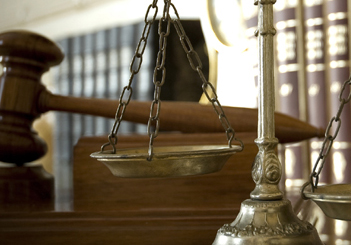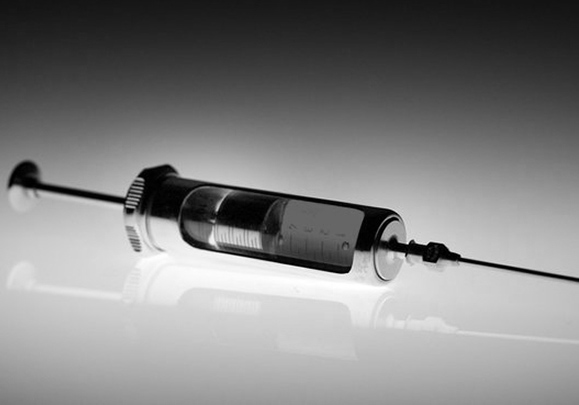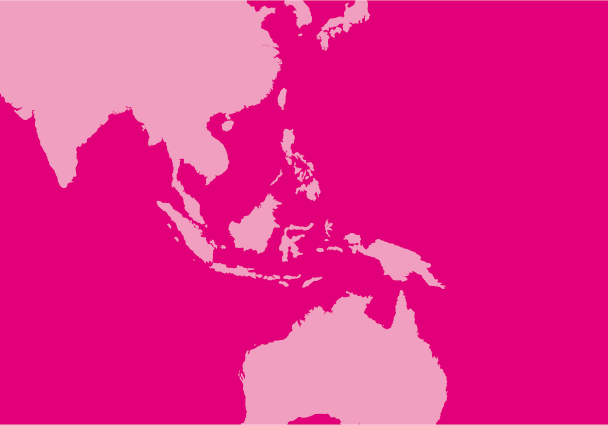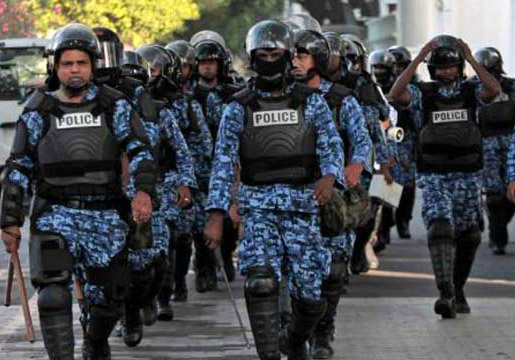
Sep 14, 2017 | Advocacy
In a joint statement released today, the ICJ joins several other organisations in calling on the Supreme Court of the Maldives to rescind the indefinite suspension of 56 lawyers.
The lawyers had signed a petition to the Supreme Court calling for the independence and reform of the judiciary.
The statement, made jointly with Maldivian Democracy Network, Front Line Defenders, Transparency International and FORUM-ASIA, can be downloaded here: Maldives-Advocacy-Lawyers-2017

Jul 18, 2016 | News
The Maldives must immediately commute the death sentence imposed on Hussain Humam Ahmed and reinstate the 60-year old moratorium on capital punishment with a view towards abolishing it in law, the ICJ said today.
The Maldives Supreme Court on 24 June 2016 upheld the death sentence of 22-year old Hussain Humam Ahmed, convicted in 2012 for the murder Afrasheem Ali, a Member of Parliament (MP).
The execution, which the Government has expressed its intention to carry out within thirty days of the ruling, would be the first in the country since 1953.
“The reintroduction of the death penalty after 60 years, even as an increasing majority of nations are moving towards its abolition, is a tremendous blow to the already weak human rights situation in the Maldives,” said Nikhil Narayan, the ICJ’s South Asia senior legal adviser.
“Maldivian authorities must immediately halt Humam’s and others’ imminent executions and reinstate the moratorium as a first step towards getting rid of it outright,” he added.
On 7 July 2016, just two weeks after upholding Humam’s death sentence, the Supreme Court upheld a second death sentence, this one against Ahmed Murrath, a 32-year old convicted for the 2012 murder of Ahmed Najeeb, a prominent lawyer.
Hussain Humam was first arrested in October 2012 for the stabbing death of Afrasheem Ali, an MP for the ruling Progressive Party of the Maldives (PPM).
The trial, conviction and Supreme Court decision come even as the prosecutor’s office has admitted that the investigation into the murder is still ongoing.
The Supreme Court ruling also ignored a last-minute request by the victim’s family to delay enforcement of the death sentence until the conclusion of the investigation.
Human rights groups and independent observers have highlighted a number of fair trial and due process irregularities in Humam’s investigation and trial.
Humam’s conviction was based solely on his “confession” at a May 2013 hearing, after initially pleading not guilty.
Humam later retracted the confession and claimed that the police had obtained it through coercion.
“Proceeding with Humam’s execution on the basis of a deeply flawed trial, particularly in a context in which the Maldivian Supreme Court and criminal justice system are already under considerable criticism for their lack of independence, impartiality and failure to adhere to international fair trial and due process standards, would amount to a further violation of his rights to life and human dignity,” said Narayan.
The ICJ opposes capital punishment in all cases without exception. The death penalty constitutes a violation of the right to life.
“The death penalty is the ultimate form of cruel and inhuman punishment, which cannot be reversed once carried out, and neither serves the interests of justice for victims nor as a deterrent against future crimes,” Narayan added.
Following the Supreme Court’s decision, on 30 June, the Maldivian Government amended regulations to enforce the death sentence by lethal injection.
The new regulations require the president to order Humam’s execution within three days of endorsement of the death sentence by a committee comprising of the chief prosecutor, the commissioner of prisons, and the chief justice.
The execution must then be carried out within seven days of the president’s order. The president may then only halt the execution on a direct plea from the victim’s family.
President Yameen’s administration has maintained its resolve to implement the death sentence within thirty days of the 24 June Supreme Court ruling.
The Maldives must immediately halt Humam’s and others’ imminent execution, reinstitute the moratorium on the use of the death penalty and take meaningful steps towards its eventual abolition in law and practice, the ICJ says.
Background:
The ICJ has previously detailed the human rights crisis in the Maldives, and the deep politicization of the Maldivian judiciary and criminal justice system, in its August 2015 fact-finding report.
The Maldives is party to most of the principal human rights treaties, including the International Covenant on Civil and Political Rights, which obliges the Maldives to respect the rights to life, human dignity, freedom from cruel, inhuman or degrading treatment or punishment, and to a fair trial.
In December 2014, the UN General Assembly adopted a resolution, for the fifth time since 2007, emphasizing that the use of the death penalty undermines human dignity and calling on those countries that maintain the death penalty to establish a moratorium on its use with a view to its abolition. A majority of 117 UN Member States voted in favor of a worldwide moratorium on executions as a step towards abolition of the death penalty.
Contact:
Nikhil Narayan, ICJ South Asia Senior Legal Adviser, t: +977-981-3187821, e: nikhil.narayan(a)icj.org.

Mar 21, 2016 | News
The Maldives must stop undermining the independence and integrity of the judiciary through arbitrary and politically motivated actions against judges, the ICJ said today.
“The ICJ visited the Maldives last month for the second time in a year, and we were dismayed to see that the Maldives government has continued to erode the rule of law and weaken the independence of the judiciary,” said Nikhil Narayan, ICJ’s Senior Legal Adviser for South Asia.
“The government must immediately stop targeting judges and other public officials with arbitrary criminal proceedings, threats, intimidation and harassment,” he added.
On 7 February, Magistrate Judge Ahmed Nihan was arrested, along with former Prosecutor General and former Criminal Court Judge Muhthaz Muhsin, in connection with an alleged ‘forged’ arrest warrant against President Yameen.
“The arrest of a judge for issuing a warrant, a function which is well within the ordinary powers and responsibilities of the judiciary, clearly violates basic principles of judicial independence,” Narayan further said. “The fact that the alleged warrant was against the President further suggests that Judge Nihan’s arrest was politically motivated.”
“Moreover, the severity of a charge of ‘terrorism’ for such an act, even if taken at face value, cannot reasonably be viewed as proportionate to the alleged offense,” he added.
On 16 March, more than a month after his arrest, Judge Nihan was charged under sections 4(a)(1)-(2) and 5(a)(2) of the Prevention of Terrorism Act, for attempting to unduly influence the state, attempting to create fear among the public, and attempting to forcefully disappear or hold a person hostage.
The Constitution of the Maldives does not provide immunity for the president from criminal accountability even while still in office.
The ICJ was also concerned to find during its visit that Maldivian authorities have continued to undermine the independence of the judiciary by using the threat of transfer or removal of judges as a tactic of political retribution, harassment and intimidation.
On 14 February, former Criminal Court Chief Judge Abdullah Mohamed was abruptly transferred from the Criminal Court to the Family Court following a sudden and late night meeting of the Judicial Service Commission (JSC), without being given an opportunity to appear on his own behalf during the meeting.
While the JSC has given no reasons for its decision, lawyers, human rights defenders and former government officials with whom the ICJ spoke suggested that the transfer had been taken in retaliation for Judge Abdullah’s failure to remand former Prosecutor General Muhsin following his arrest.
It was also suggested by those interviewed that a further motivation for the transfer was to ensure that Judge Abdullah could not indirectly influence the three-judge bench hearing the former Vice President’s criminal case in favor of the defendant. Judge Abdullah was reported to have close ties with both defendants.
In June 2015, Judge Azmiralda Zahir, one of only three female judges in the entire Maldivian judiciary and the only woman on the High Court, was arbitrarily and unexpectedly transferred by the Supreme Court from the Malé appellate bench to the southern regional bench, a transfer that amounts to a demotion, without formal notice or opportunity to challenge her transfer.
The Supreme Court has neither established clear criteria for its decision-making process in such matters nor informed Judge Zahir of the reasons for her transfer, of which she learned through media reports, despite repeated requests by her to both the Supreme Court as well as the JSC, the ICJ says.
“President Yameen’s government must quickly take genuine steps to restore the rule of law, strengthen the independence and integrity of the judiciary and restart the democratic transition process,” said Narayan.
Contact:
Nikhil Narayan, ICJ Senior Legal Adviser for South Asia, t: +977 9813187821 ; e: nikhil.narayan(a)icj.org
Read also:
Maldives: political crisis erodes rule of law and human rights
Maldives: arrest of Judge Ahmed Nihan further erodes judicial independence

Feb 9, 2016 | News
The ICJ today condemned the arrest of Judge Ahmed Nihan and called it a further attack on the independence and integrity of the country’s judiciary.
“President Abdulla Yameen’s Government has dealt another blow to the independence of the judiciary and the rule of law,” said Sam Zarifi, ICJ’s Asia Director.
“The arrest of Judge Ahmed Nihan is another step down in the country’s downward spiral away from democracy and stability, and is squarely at odds with the Maldives’ international obligations,” he added.
Maldivian officials confirmed in a statement that Ahmed Nihan, a magistrate’s court judge, and Muhthaz Muhsin, former Prosecutor General, were arrested on Sunday night on charges of forging a warrant for the arrest of President Abdulla Yameen.
Muhthaz Muhsin was released soon after, but Judge Ahmed Nihan was placed in judicial custody for one week.
“Judge Ahmed Nihan’s arbitrary and seemingly politically motivated arrest is yet another example of executive highhandedness and the corrosion of separation of powers in the Maldives,” said Zarifi.
“Undue interference with the Human Rights Commission, the arbitrary dismissal of the Auditor General, and the unlawful removal of two Supreme Court justices are just a few examples,” he added.
According to the Maldivian media, the arrest warrant, allegedly issued by Judge Ahmed Nihan, related to an on-going investigation against President Abdulla Yameen for embezzlement of state funds.
President Yameen’s spokesperson said in an interview the warrant was “fraudulent” because it “did not originate from any official authority.”
The Maldivian police (photo) claim the arrest warrant was issued using “falsified information”.
The ICJ calls on the authorities to immediately release Judge Ahmed Nihan and allow him to continue his judicial duties.
The ICJ also reiterates its previous calls on the Maldivian Government to implement recommendations on human rights and the rule of law, including the independence of the judiciary, received as part of the UN Universal Periodic Review process.
Contact:
Sam Zarifi, ICJ Asia Pacific Regional Director (Bangkok), t: +66 807819002; e: sam.zarifi(a)icj.org
Additional information:
In a fact-finding report released in August last year, the ICJ noted with concern the serious erosion of the independence, impartiality and integrity of the judiciary, which resulted in the deterioration in the rule of law in the Maldives and the stalling of the country’s transition toward a more representative government.
Article 14 of the International Covenant on Civil and Political Rights (ICCPR), which Maldives acceded to in 2006, safeguards the independence and impartiality of the judiciary.
International standards on judicial independence, including the UN Basic Principles on the Independence of the Judiciary, provide that judges shall be free from any “inappropriate or unwarranted interference with the judicial process”.
The fact that executive or legislative actors may disagree with a judge’s decision or interpretation of the law cannot be a valid ground for removal or punishment of the judge.
The UN Basic Principles on the Independence of the Judiciary further stipulate that judges shall be subject to suspension or removal only through proceedings that guarantee the right to a fair hearing (Principle 17); and then only for reasons of incapacity or behaviour that renders them unfit to discharge their duties (Principle 18); that all disciplinary, suspension or removal proceedings shall be determined in accordance with established standards of judicial conduct (Principle 19), and decisions in disciplinary, suspension or removal proceedings should be subject to an independent review (Principle 20). The Basic Principles elaborate on legal obligations under article 14 of the International Covenant and Civil Rights (ICCPR).
The Commonwealth Latimer House Principles on the Three Branches of Government 2003 contain similar provisions.
Article 154 of the Maldivian Constitution states that a judge may be removed from office only if the Judicial Service Commission finds that the person is grossly incompetent or guilty of gross misconduct.
Jan 29, 2016
III. Main areas of concern and recommendations C. General principles (arts. 2, 3, 6 and 12) Non-discrimination 26. The Committee is concerned about: (e) That children who are or are perceived to be lesbian, gay, bisexual, transgender or intersex are stigmatized and...








